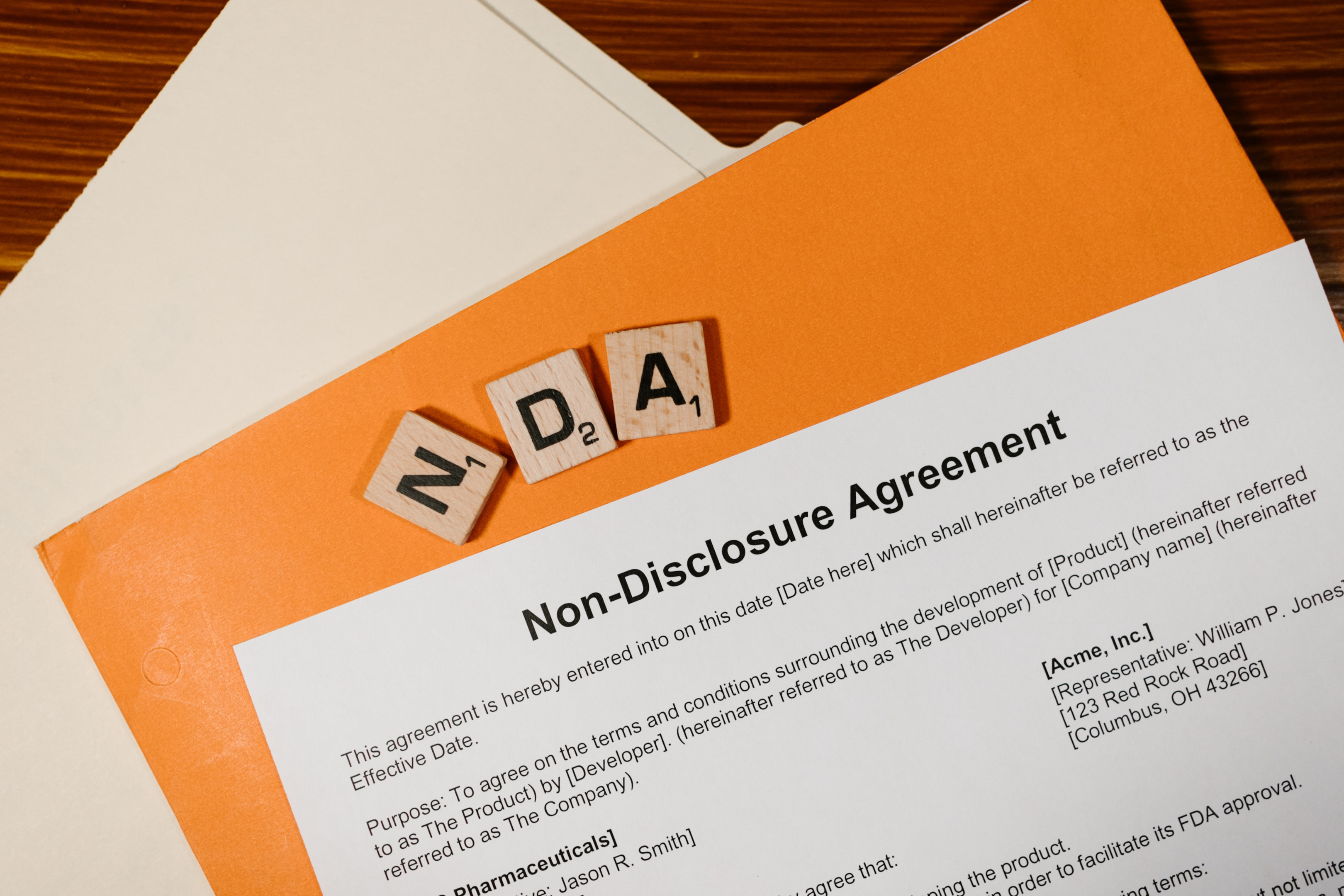
Everything You Need to Know about Contracting in Business
Every firm has contracts at its core, regardless of its size. Contracts are challenging to understand. Before you sign anything, make sure you know all of the terms of the deal.
This article compiles the information you need to know about contracting in business. It includes different business contracts, how to manage the contract well, and a helpful guide about breaching a contract.
What does contracted mean in business?
A business contract is a term that binds two or more parties legally. This legally binding agreement between two parties helps set conditions when exchanging goods or services.
Most of the time, it is in the form of a written agreement that the two parties need to sign to close the deal. Before signing a contract, be sure you completely understand its conditions. First and foremost, you should consult with an attorney or other qualified practitioner.

How is contracting used in business?
Business contracts provide the legal security you require in any operation. It also protects you and your firm because it helps you understand your rights and responsibilities under each agreement, minimizing risk.
The importance of a written contract isn’t the only thing to consider while negotiating a business deal. The conditions of any business contract must be complete and transparent. Terms of an agreement might include but are not limited to the parties involved, the length of time it will last, and the particular terms under which each party must perform, as well as issues of privacy and how they can resolve the possible disagreements. Both parties must consider their wants and needs early in the writing process.

Who are the people involved in a contract?
There must be two or more parties, an offer, agreement, and consideration in the contract. Both parties must adhere to the terms and conditions if they include these features. Additionally, the elements give the agreed-upon advantages, such as food and payment.
Promisor and promisee
One with obligations under a contract and benefits from it is known as a party to the agreement. Each party to a contract plays a unique role in its performance: the promisor promises the promisee. The one who makes the promise is known as the promisor. The promisee is to whom the promisor made a promise.
A contract will be official once both parties have agreed on the delectable morsels and the price. The following information is necessary to constitute a legally enforceable contract:
- Parties’ data and contact information
- Expenses
- A clause that states contract acceptance
A contract benefits more than just the parties involved in it. There might be both intended and unintended parties in a situation. Third-party beneficiaries benefit from contract terms.
Third-party beneficiary
A third-party beneficiary is someone who benefits from a contract but isn’t a party. The promisor and promisee are contract parties, but a third party receives the promise.
Each party to the contract has a particular set of responsibilities and rights. The promiser is responsible for delivering what he promised in the agreement. Both the promisee and the third-party beneficiary can’t sue him. Only one party can sue for performance if the promiser fails to keep his end of the bargain.

Types of business contracts that are commonly used
Most businesses and organizations rely on business agreements. They make it easier for people to work together and get things done in business.
Business contracts can help enterprises manage expectations and stay out of trouble when done right. Here are some of the standard but beneficial business contracts:

Government contract
U.S. government is the world’s most outstanding purchaser of goods and services. There are vast choices of federal government contracts available for small or large businesses. However, there are two primary categories of government contracting:
- Fixed-price: Fixed-price is a type of government contract with a fixed payment amount regardless of how much money the contractor spends or how long they labor.
It is easier for buyers to organize their money when they have a fixed-price contract. The contract indicates the price of a good or service so that customers can plan their budgets.
- Cost-reimbursement: The owner pays the general contractor for project-related charges under a cost-reimbursement agreement.
This contract assures the general contractor doesn’t exceed the agreed-upon amount without buyer permission. The general contractor can stop working if he exceeds the limit.
Some more contract forms include indefinite-delivery contracts, letter contracts, and incentive contract types such as time, materials, and labor hours.
Small Business Administration or SBA.gov is a government agency website that communicates with small businesses. It helps people start and run a small business, gives advice on finances and management, and helps small businesses get federal contracts.

Employment contract
Your company’s growth and success depend on hiring new staff. Employers and employees benefit from having a written agreement that spells out everything from remuneration to perks to the length of employment to reasons for terminating an employee.
An employment contract outlines the rights, responsibilities, and obligations of the employer and the employee. The terms of the agreement legally bind both parties. They sign once the employer extends the job offer to the candidate.
Property and equipment lease agreement
Both parties agree to pay the owner a rental fee for the right to use the equipment or property for a set time.
When starting a new firm, purchasing the necessary equipment to compete in your market may not be possible. An equipment and property lease is what you need. It outlines the terms and circumstances of a lease, including monthly payments, deposits, duration, and maintenance agreements.
Sales-related business contracts
A sales-related contract is a legal document that transfers property ownership in the business. This type of contract indicates the specific details of the item or product. You can specify what you want to buy in a purchase order.
Products and services traded with warranties come with legal rights assurances concerning their quality and performance. Businesses who sell items to customers who pay in installments have the right to take back those things if their customers fail to make payments under the terms of a security agreement.
Indemnity agreement
Indemnity is a type of insurance in the contract that covers the whole range of damages and losses. As the name suggests, this agreement calls for one party to protect the other’s possible losses or damages.
There are alternative terms for an indemnification agreement, such as a release of liability and a no-fault agreement.

Partnership agreement
A well-written Partnership Agreement outlines the relationship and duties of company partners. The company contract outlines each partner’s responsibility, capital contribution, profit or loss sharing, ownership stake, and partnership dissolutions clause.
Partnership agreements during a commercial partnership outline expectations and duties. The deal should be in writing if a partner wants to amend it.

Non-disclosure agreement
A non-disclosure agreement (NDA) creates a confidential relationship. The participants in the contract agree not to disclose sensitive information. NDA is a secrecy agreement.
Business talks often involve non-disclosure agreements. They let parties discuss critical information without the concern of competition. A mutual non-disclosure agreement describes this situation.
Is contracting a good business?
Business contracting is becoming increasingly popular as companies realize the advantages of having a more adaptable workforce. Here are the advantages why business contracts are essential.
Agreements contribute to generating revenue.
A legally enforceable agreement states that one party will provide a service in return for money. As a result, organizations can produce more revenue by having business contracts processed quickly and following their conditions. Due to faster contract processes, companies can sign more transactions and generate more revenue.
Broaden experience
If you want to expand your experience and learn new things, contracting is a great way to do so. You’ll be exposed to various management styles, cultures, processes, and practices when working for multiple firms, which will help you grow professionally. Having a wide range of experience can help you land a new job.
Build relationships networking
Contracting allows you to meet people from many companies, which is a significant advantage. If you consistently provide outstanding service to your clients, you will create a reputation as a talented and trustworthy specialist. An extensive network and a solid reputation can help you land more contract work or more long-term employment chances in the long run.
It supports both parties equally.
In addition to increasing the likelihood of success, having expectations in writing makes them easier to implement. The fact that it’s on paper might pressure all parties involved to meet their responsibilities on time.
An agreement that is in writing makes it much easier to enforce if there is a problem occurs. Providers may take legal action if the client switches to a different agency midway through a job. Alternatively, the vendor will have legal protection against paying for work if a service provider performs poorly.

Best practices in business contracting
Companies that don’t manage their business contracts well may affect their finances. In particular, once contracts are signed, people tend to be more relaxed and deal with problems rather than before.
Here are the best practices that every contracting business must consider.
Organize business contracts
Finding the perfect contract needs a lot of workforces. One of the best ways to organize the contracts is using IT systems. Companies can invest in software that can digitize contracts and arrange them more proficiently.
Contract management software can do a lot of things. It can oversee company disruptions, missed deadlines, third-party breaches, and contractual non-compliance. By digitizing and moving your contract portfolio to a cloud-based repository, organizations may empower users to access contracts anytime, anywhere, and probe them for insights.
Standardize contracting
Poorly written contracts can cost firms millions and imperil their consumer base. The business contract terms vary by region and service, complicating contract development. Legal teams take weeks or months to prepare a contract accurately.
Building a central library with standardized templates for particular scenarios and linking them with lifecycle management systems helps minimize the time and budget spent on organizing contracts. Creating templates ensures error-free drafts that cover all terms and legal provisions.
Streamline the process of drafting contracts.
Traditionally, separate departments drafted contracts in isolation, with little consideration of their interrelationships or associated risks. Before signing off on a contract, it’s usual practice to go back and update any obsolete templates and metadata. As a result, businesses may be exposed to significant dangers in the future.
Small and big companies can avoid this problem by maintaining uniformity in the development of contracts.
Consider implementing security
Both security and ease of contract access are essential considerations in the ideal contract management strategy, yet they may appear mutually exclusive at first glance.
Use a safe storage system with solid user identity verification as a solution. Ensuring that only authorized individuals have access to sensitive data is essential. The administration of contracts is made more accessible with a centralized system. Users will only see files to which they have permission to see if the system administrator has set up different degrees of access.
Automate communications
Emails aren’t centralized enough to be used in contract communication. Consider using contract lifecycle management (CLM) software that tracks every activity and notifies parties in real-time. Automating your communications guarantees no party is left behind.

What is a breach of contracting in business contracts?
A breach of contract is when one party doesn’t follow the rules of an agreement between two or more people. However, any of the parties can’t discontinue the contract quickly.
Here are the different types of breached contracts.
Material breach of contract
A material breach of contract is a severe contract violation when one party gets significantly less advantage or a different result than what was specified in the contract. Two common examples of violations under material breach of contract are:
- Inability to meet contractual responsibilities according to the terms of the contract
- Failure to fulfill each party’s obligations on time
When a severe breach occurs, the other party has the right to seek damages for the breach’s direct and indirect consequences.
Partial breach of contract
A partial contract breach refers to circumstances where the other party receives a deliverable, but the party in breach fails to fulfill some part of their commitment. Legal recourse may be available solely to the party that has incurred financial harm due to the violation.
Unless the delayed party can demonstrate economic damage, there may be no recourse for delivery that is more than a day late.
Anticipatory breach of contract
An anticipatory breach occurs when one of the parties has said that they will not fulfill their contractual duties even though a fundamental breach has not happened. Even though the party who broke the agreement can tell the other party directly, this claim could also be based on actions that show one of the parties doesn’t want to or won’t be able to do what they agreed to do.
Contract violation breach of contract
When a party has committed an actual breach of contract, it means they have failed to meet their contractual responsibilities on time or have done it incorrectly or incompletely.
In a breach, the opposite party may seek various remedies. In addition to compensatory damages, there are consequential damages, which are losses that are not directly related to the breach but are nonetheless caused by it.

Category: Articles




